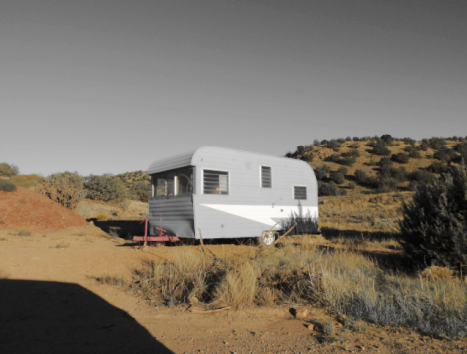Here Are Qualities to Look for When Buying a Trailer
 There is nothing more exciting than hitting the open road with your family, exploring places you have never been, and partake in new adventures and experiences. If you are looking at purchasing a camper, recreational vehicle, or trailer it can be a daunting task, no matter how knowledgeable or excited you may be.
There is nothing more exciting than hitting the open road with your family, exploring places you have never been, and partake in new adventures and experiences. If you are looking at purchasing a camper, recreational vehicle, or trailer it can be a daunting task, no matter how knowledgeable or excited you may be.
This is a very large purchase, and it is important to ensure that you have done your research and are purchasing the correct camper to meet your personal needs and those of your family.
How can you ensure that you are making the right decision and opting for the correct camper? There are many specific questions to ask and qualities to look for when purchasing a camper, and here are a few of them, to aid in your experience and ensure you can hit the road and adventure with little to no problems.
Don’t let the wrong purchase interfere and impede your happiness, take into account these suggestions, and find yourself on the open road living the life you have always dreamed of.
Size Matters When Deciding on a Camper
While you may think that it is nice to be cozy and comfortable with the family, your happy experience can take a turn for the worse if you don’t plan and purchase an appropriately sized camper for your specific needs.
Campers come in many shapes and sizes, you can purchase a tent trailer that is great for a couple, but this won’t serve long for a family of 4 or 5 people.
You can purchase a super large RV, but if you are only traveling with one person, you may find yourself regretting the large purchase and wishing for a smaller camper.
Number of Beds
Purchasing a camper that sleeps only 3 people will be to your detriment if you know you are going to have 5 to 6 people on the trip. Ensuring you have the appropriate number of beds, storage, and resting space is important.
Don’t buy a camper larger than your needs, but also ensure you are not buying a camper that is too small, just to save a bit of money. Maybe your kids are small now and can share a bed, but this may change in a year or two, and unless you are planning to upgrade, you want to purchase a camper that will serve you and your family for years to come.
Towing Capacity
Another consideration when deciding what camper to purchase is your vehicle’s towing capacity. While a large camper might seem great, and your vehicle has a hitch, you need to ensure that your towing capacity matches the weight and size of the camper you are purchasing.
If you have a smaller SUV, you cannot tow a large trailer meant for higher-capacity trucks. You also need to note your towing package. While your vehicle may be rated to tow a larger weight class of vehicle, your hitch might not.
The tow package that is available on your vehicle will dictate whether you can tow a camper off the lot or not. If you only have a class one tow package, good for 1500 lbs, but your vehicle is rated to tow 3600, the vehicle’s capacity doesn’t matter, as the hitch and tow package itself will not be sufficient to handle the load.
Make sure you check your vehicle’s towing capacity and decide if you want to upgrade it or stay within its limits. You can always upgrade your two packages only, but this will cap out your towing capacity at your vehicle limit. Ensure you are looking at a camper within your vehicle’s capacity, or you may be disappointed to choose a camper, and find your vehicle is incapable of towing it.
Trailer Age and Warranty
While these are two of the biggest factors when choosing a camper there are many other things to consider, such as the age of the trailer. If you are wanting to save some money, you can purchase an older used trailer, but you want to ensure that all the systems are functioning appropriately, as there will probably not be any warranty left on older campers. If you don’t want to worry about maintenance and ensure that your camper is fully warrantied, then the team at https://caravanwoods.com/ suggests purchasing a brand new from a dealer that will guarantee maintenance and functionality of the camper, up to a certain age or mileage. If you are a great mechanic, with DIY skills, you can purchase an older camper with some fixer-upper problems, and complete the repairs yourself, but remember, this may come back to bite you if you don’t have the appropriate knowledge and experience to repair the camper yourself.
Pay Close Attention to the Campers Weight Wet and Dry
Campers have two different specifications when it comes to their weight classes. Your camper will have a dry weight and a wet weight. Dry weight signifies what the camper weighs without any water or sewage in the holding tanks. While your vehicle may be rated to tow the camper dry, once you factor in the wet weight of the camper, your vehicle may not suffice.
Ensuring that you know the camper’s wet and dry weight will save you headaches, as well as help you to avoid unnecessary costs associated with towing a camper that exceeds the weight specifications of your vehicle. This is a mistake that is commonly made and can not only be detrimental to your enjoyment of the camper but also cause untold damage to your vehicle.
Avoid costly repairs by ensuring when you scope out your camper to purchase, you are considering not only its dry weight but also its wet weight. Ensure that your vehicle can handle this, and don’t fall in love with a trailer that you cannot tow (unless you are willing to upgrade your vehicle or tow package).
All in all, when considering purchasing a new camper, you want to make sure that your vehicle can tow it properly without damage, that it has sufficient space for your needs, and that the maintenance won’t make you drown in costs and problems.
Focusing on your specific needs and finding a trailer that fits within them is incredibly important, and will mean the difference between enjoying your adventures, or experiencing a nightmare. No matter what you are looking for there are some great options available, and if you want to adventure and explore there is no better way to do so than to purchase a camper for your family’s enjoyment.
